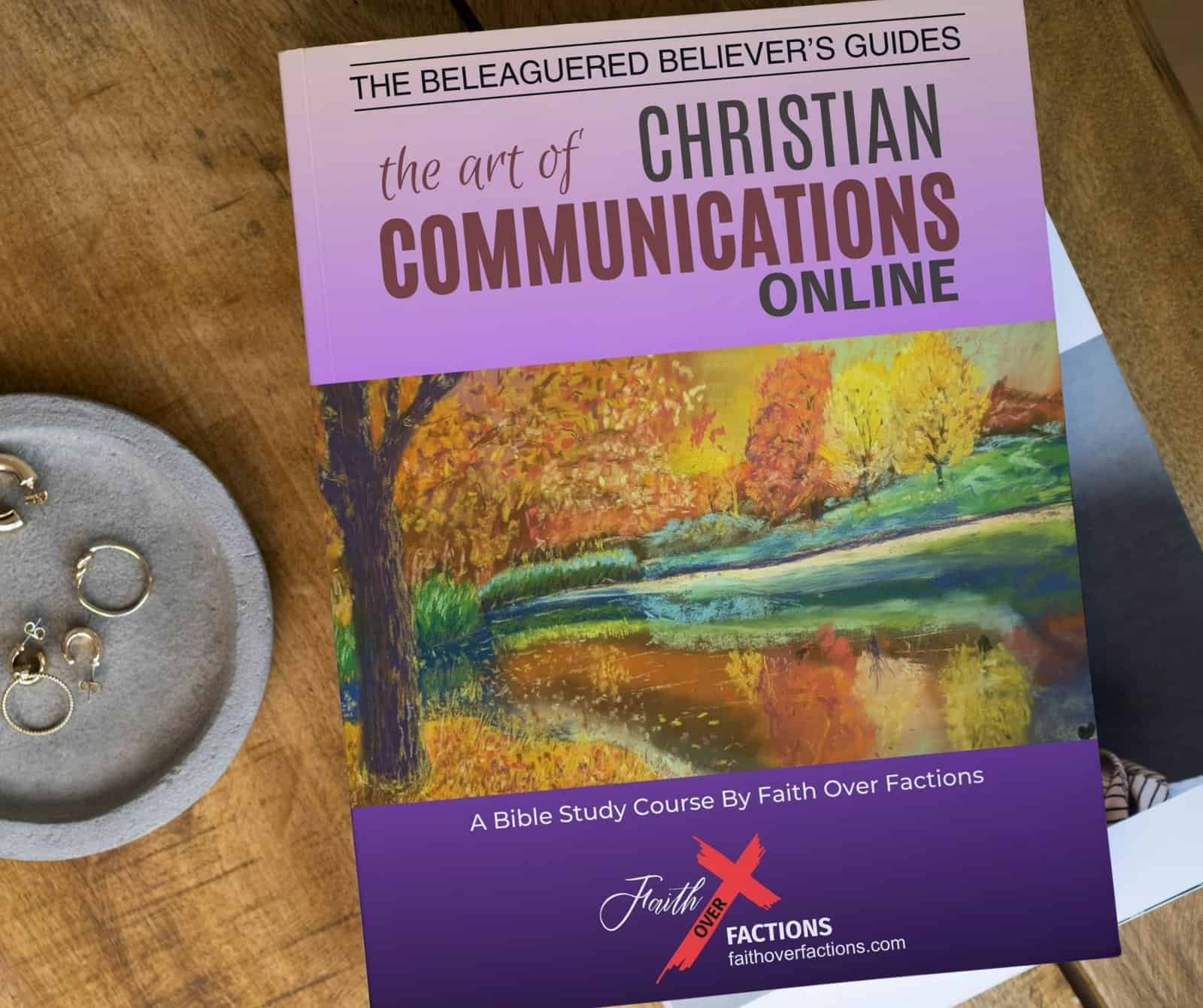
When Love Asks for Help, But Faith Refuses to Command
What does it mean to pray for someone without praying at God?
We carry burdens for friends, for nations, for those we love. But sometimes our prayers slip into demands—wish lists or ultimatums, as if we believe enough emotion or repetition will force God’s hand. So how do we intercede with sincerity, without slipping into the role of puppet master?
Anchor in the Word
Key Verse
“And the Holy Spirit helps us in our weakness. For example, we don’t know what God wants us to pray for. But the Holy Spirit prays for us with groanings that cannot be expressed in words.”
Romans 8:26 (NLT)Key Scripture Context
This verse reminds us that even when we love deeply and want to help, we don’t always know what to ask. The Apostle Paul shows us: prayer is not about perfect phrasing or persuasive requests—it’s about surrender. And surrender begins with silence, not strategy.
What We’re Facing
When Prayer Feels Like Pressure
Have you ever wanted something so badly for someone—a healing, a breakthrough, a rescue—that you begged God with every fiber of your being? Maybe you found yourself whispering the same plea in the car, in the shower, in the middle of the night: Please, God. Please fix this. Please come through. I’ll do anything. Maybe you even promised something in return—more faithfulness, more gratitude, more obedience—if only He would act.
That kind of desperation is deeply human. It comes from love, from grief, from helplessness. But too often, without even realizing it, our prayers morph into pressure. We feel like if we just say the right thing, feel deeply enough, or stir up enough emotion, then maybe God will respond. It’s a quiet form of bargaining, cloaked in devotion. But underneath it all lies a distorted assumption: that our effort moves God's hand.
This is where prayer can become heavy, even suffocating. Instead of communion, it feels like a performance. Instead of rest, it becomes a race—to prove our sincerity, to earn divine action, to protect the people we love through the power of our wording.
But prayer is not a contract. And God is not a vending machine, a genie, or a remote deity who needs to be persuaded. He is a loving Father, fully attuned to our hearts before a single word escapes our lips (Matthew 6:8). He does not demand perfect phrasing, nor is He motivated by our panic. Instead, He invites us into honest relationship—where presence matters more than precision, and surrender means more than strategy.
This shift is hard. We’ve been shaped by a world that values results, formulas, and control. But God isn’t transactional. His response is not proportional to our emotional intensity. He’s not waiting for the right code to unlock compassion. He is compassion. And He listens not because we’ve earned it—but because He is good.
When we feel the pressure to “pray it right,” that’s our sign to pause. To breathe. To let go of the need to control outcomes. And to remember: the power of prayer is not in how we pray—but in who we pray to.
E.M. Bounds
*“Prayer is not learned in a classroom but in the closet. It is not learned by talking about it, but by practicing it.”*¹
Then and Now—Drawing Parallels
Ancient Voices, Modern Echoes
In the ancient world, prayer was often transactional. Pagan cultures built entire systems around appeasing their gods—through sacrifices, incantations, ritual chants, and ceremonial gestures. These prayers were attempts to manipulate divine action through precision and performance. The louder the chant, the more repetitive the phrase, the more likely the gods might hear and respond.
The idea wasn’t intimacy—it was leverage. Their gods were seen as temperamental beings who could be stirred, bribed, or pressured into action. Prayer became a tool of control in a fearful relationship, not a faithful response to a loving Creator.
And though our language has changed, the temptation remains.
When Christian Prayer Starts Sounding Pagan
Sadly, many modern Christians unintentionally mirror this ancient mindset. We fall into routines of spiritual bargaining, believing that more words or better words equal better results. Some repeat the same prayer over and over with increasing intensity, hoping repetition will sway God. Others rehearse eloquence, believing that the right phrases might impress Him into acting.
But Jesus challenged that directly when He said, “When you pray, don’t babble on and on as the Gentiles do. They think their prayers are answered merely by repeating their words again and again. Don’t be like them, for your Father knows exactly what you need even before you ask him” (Matthew 6:7–8).
This isn’t a command to stop praying—it’s an invitation to stop performing. Biblical prayer is not a tool to move a reluctant God. It’s a practice of trust in a loving One.
Trust, Not Technique
What sets biblical prayer apart is not its structure—it’s its foundation. Trust. Trust that God's love doesn’t need to be coaxed. Trust that God's mercy doesn’t run on formulas. Trust that we are heard because we are His, not because we performed well.
To pray biblically is to come with humility, not pressure; relationship, not ritual. When we lift someone up in prayer, we are not placing them into a courtroom where we argue their case. We are placing them onto an altar of divine compassion.
E.M. Bounds wrote,
*“The men who have done most for God in this world have been early on their knees. He who fritters away the early morning, its opportunity and freshness, in other pursuits than seeking God, will make poor headway seeking Him the rest of the day.”*²
Prayer that moves mountains doesn’t begin in volume—it begins in surrender. It’s not about getting what we want. It’s about aligning ourselves with the heart of God, and inviting His mercy into the lives of others.
Theological Truth in Plain Language
Prayer Is Not Control—It’s Communion
Here’s the hard truth: prayer isn’t about control. It’s about alignment. We don’t pray to bend God’s will to ours—we pray so that our hearts may be shaped by His.
Too often, we confuse intercession with manipulation. We assume that if we care deeply enough, or phrase our requests passionately enough, we’ll earn a specific outcome. But biblical prayer doesn’t function that way. God doesn’t need to be talked into compassion—He is compassion. He doesn’t require persuasion—He desires partnership.
As Paul reminds us, even when we don’t know how to pray, the Spirit intercedes on our behalf (Romans 8:26). That’s not a failure on our part—it’s an invitation into trust.
Participation, Not Performance
When we pray, we’re not initiating something. We’re joining something already in motion. We’re entering into a divine rhythm that has been moving long before we noticed the need.
To intercede is not to instruct God, but to invite His presence. It’s not to prescribe an answer, but to offer ourselves as vessels of His mercy. In that light, prayer becomes less about performance and more about participation. Less about words, more about willingness. Less about technique, more about trust.
We pray because we love others deeply—but we trust because we know God loves them more than we ever could.
Prayer as the Hidden Work of Love
True intercession is not a magic wand. It’s not a strategy session with the Almighty. It’s a sacred act of love and surrender. It begins in hidden places—in the closet, not the crowd; in the whisper, not the shout.
As E.M. Bounds wisely wrote:
*“Prayer is not learned in a classroom but in the closet. It is not learned by talking about it, but by practicing it.”*³
To pray for others is not to fix them. It’s to lift them gently into the hands of the One who knows every wound and every timeline. The power isn’t in our phrasing. The power is in God’s presence. And when we trust that presence more than we trust our plans, something shifts—both in them and in us.
Practical Moves of Faith
These aren’t formulas. They’re postures of trust. If you’ve ever felt unsure how to pray for someone without trying to fix them or control the outcome, these steps offer a place to begin.
Name the Desire, Not the Demand
Start with honesty. What is it you deeply want for this person? Is it healing, clarity, reconciliation, or peace? Write it down. Speak it aloud. Let your love be real and specific. But then—release the script.
Instead of demanding the outcome, offer the desire:
“Lord, I want them to be healed.”
“I want them to find rest.”
“I want justice in their life.”
Then pause and say, “But I trust You to know how and when. I trust You more than I trust my own urgency.”
This shift from demand to desire is the first act of surrender.
Let the Spirit Intercede
You don’t have to carry the full weight of the moment. You’re not expected to find the perfect words. Scripture already tells us that the Holy Spirit helps in our weakness, praying for us “with groanings that cannot be expressed in words” (Romans 8:26).
So pause. Let your body be still. If you don’t know what to say, say so:
“Holy Spirit, I don’t know how to pray for them—please pray through me.”
Give space for silence. Let your longing exist without needing to dress it up. Trust that God hears what even you can’t articulate. Your presence in prayer is enough.
Intercede with Open Hands
Prayer isn’t a clenched fist—it’s open hands. Try literally praying with your palms up. It’s a posture that says, “I’m not holding onto control. I’m here, offering, trusting, letting go.”
Speak a simple phrase as you hold that space:
“I lift them to You, God. I place them in Your care.”
“I trust Your timing. I trust Your mercy.”
This doesn’t mean you stop caring. It means you stop clinging. Surrender doesn’t weaken your prayer—it amplifies its purity.
Focus on God’s Character
When results are uncertain, focus on what is certain: God’s character. Pray from who He is, not what you fear. Remind yourself in prayer:
“You are the God who sees.”
“You are good, even when I don’t understand.”
“You are already present in their life, working in ways I can’t see.”
This helps your prayer shift from anxiety to worship. It re-anchors your heart. It keeps you from treating God like a distant genie and reminds you that He’s already near, already at work, already loving the one you’re lifting.
More Light for the Journey
Philippians 4:6 (NLT)
“Don’t worry about anything; instead, pray about everything. Tell God what you need, and thank him for all he has done.”
→ Prayer involves both request and release—gratitude keeps fear in check.James 5:16 (NLT)
“The earnest prayer of a righteous person has great power and produces wonderful results.”
→ The power isn’t in manipulation but in authenticity and faith.1 John 5:14 (NLT)
“And we are confident that he hears us whenever we ask for anything that pleases him.”
→ God’s will is the anchor—not our demands, but His delight.Matthew 6:7–8 (NLT)
“When you pray, don’t babble on and on... Your Father knows exactly what you need even before you ask him!”
→ We don’t have to convince God. He is already listening—already loving.
Let’s Walk This Out Together
Prayer is not performance. It’s presence.
We don’t show up to prayer as spiritual salespeople trying to convince God to care. We come as beloved children entering the presence of a faithful Father. When we intercede, we’re not taking command—we’re laying down control. We’re not giving God our to-do list—we’re giving Him our trust.
That’s what makes intercession holy. It’s not flashy. It’s not forceful. It’s faithful.
If someone you love is hurting today, don’t rush to solve their story. Instead, lift them gently. Speak their name with reverence. Picture them in God’s arms. Say less. Trust more. And believe that the Spirit is already at work in ways you may never see.
Even if the words feel clumsy. Even if all you can offer is silence and tears. That counts. That’s prayer.
You don’t have to fix the world. You just have to carry someone to the One who can.
Join the conversation using #PrayingWithTrust.
Let’s become a people of humble, faithful, Spirit-filled prayer—together.
Journaling Prompt
From Fixing to Faithfulness
• Where have you treated prayer like a formula or bargaining chip?
Write honestly about a time when your prayers felt more like demands than relationship. Were you trying to get the outcome you wanted? Were you afraid to trust God’s timing or wisdom? Let your words be raw and real. There’s no shame in the truth—only healing.
• How could you intercede for someone today by simply lifting them into God’s presence?
Practice writing a one-sentence prayer that doesn’t tell God what to do—just trusts Him to do what’s best.
Example: “Lord, I lift [name] into Your hands. Be near to them in every way they need.”
Let that be enough. Let it remind you: God hears what your heart cannot even say.
Footnotes
- E.M. Bounds, Power Through Prayer (1907).
- E.M. Bounds, Power Through Prayer (1907).
- E.M. Bounds, Power Through Prayer (1907).







